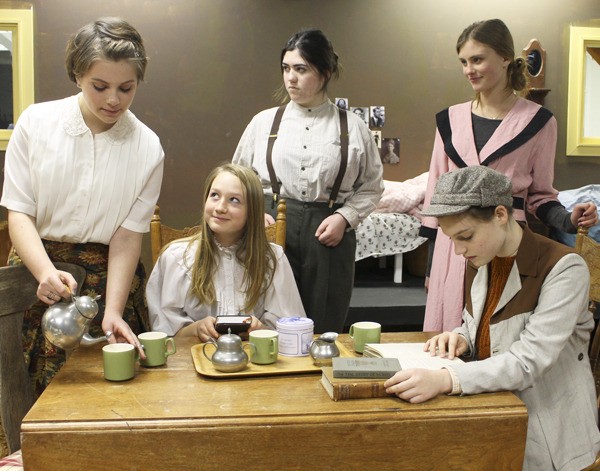On Monday, 6 July, 1942 13-year-old Anne Frank and her family were forced to leave their home and the outside world behind.
The family had already fled Germany after the Nazis took control of their home country. Now, the regime had taken over The Netherlands and the family lived in a state of repression and fear.
Anne, her sister, mother and father walked several kilometers — Jewish people were not allowed to use public transportation in Nazi-occupied countries — and went into hiding in a cramped secret annex where they would remain until their capture on Aug. 4, 1944. Eventually, the family also shared the space with Hermann van Pels, his wife and son Peter and Fritz Pfeffer, also known as Mr. Dussel.
During their time in hiding, Anne kept a detailed diary which she had received as a gift on her 13th birthday. The diary, published posthumously by her father, the only surviving member of the group, has become an important part of history and has aided in the understanding of The Holocaust.
On Dec. 11, Whidbey Children’s Theater will debut its second production of the season with “The Diary of Anne Frank,” the stage adaptation of the young woman’s famous diary.
Director Michael Morgen noted that the play is a change from the theater’s usual light fare.
“It’s a very up-close piece of theater,” he said, adding that honoring those impacted by the Holocaust is a large part of his directorial duty.
Prior to rehearsal, the actors participated in an acting intensive session in which members of the community such as Cait Cassee, Whidbey Children’s Theater executive director and actor and director David Mayer shared their respective families’ stories.
Cassee presented photos and tales passed down from her family members who, living in Holland, hid Jewish people during the war. Mayer’s relative had escaped Germany just prior to the beginning of World War II.
“We have a sense of how close all of this is to people who are important to us,” said Morgen. “That adds a lot of weight and perspective.”
“This is pertinent to things that are happening in the world today,” he said. “It is important for today’s teenagers and everyone else to remember that this wasn’t that long ago; and it is happening now in different ways.”
Ben Germano, who is playing Anne’s father Otto, said that the play is an emotional story of hope and the human condition. Despite being confined and cramped, those hiding in the annex supported one another and accepted the atrocious situation as best they could.
“I hope people come not to just see a show but to learn something about humanity,” he said.
Chloe Hood, who is playing Anne Frank, concurred with Germano and Morgen that she feels it is essential to continue sharing the story.
“I think it is amazing how cheerful Anne is with the circumstances,” said Hood, adding that she hopes the play will provide audiences with an intimate and educational interpretation of the diary’s contents. “I think the diary of Anne Frank is especially important because she is such a human character, she is so real and so it gives people an intimate view of what happened.”
Though Hood said there is no way she could know everything about Anne, she has inferred that the young girl was sassy, thoughtful and strong.
“She has two sides of her. She is both entertaining and likes to show off sometimes,” said Hood. “But she also thinks a lot about life and she knows what she wants. She is very strong.”
Hannah Mack, who is playing Mr. Dussel, concurred with some of the other actors that, due to her close proximity in age with Anne, the story seemed somewhat relatable despite the drastically different life experiences, time period and situations.
Meadow Holtby, who is playing Anne’s mother, said her Jewish mother also had family members who survived the Holocaust.
“In the scene at the end, Anne says, ‘Despite everything, everyone is really good at heart.’ That is kind of the important line that drives it home,” said Holtby. “That is the essence of her and everyone else. That is why the diary is famous; she stays cheerful throughout this atrocity that she lived through and died because of.”
Performances will run at 7:30 p.m. Dec. 11, 12 and 13, 18, 19 and 20 and at 2 p.m. Dec. 14 and 21 in the Black Box Theater at Whidbey Children’s Theater near Langley Middle School.
Tickets can be purchased online at whidbeychildrenstheater.org or at the box office. Tickets cost $15 for adults, $12 for seniors and $8 for students. Tickets will cost $5 for students under 18 or with student ID on Thursday, Dec. 18.



